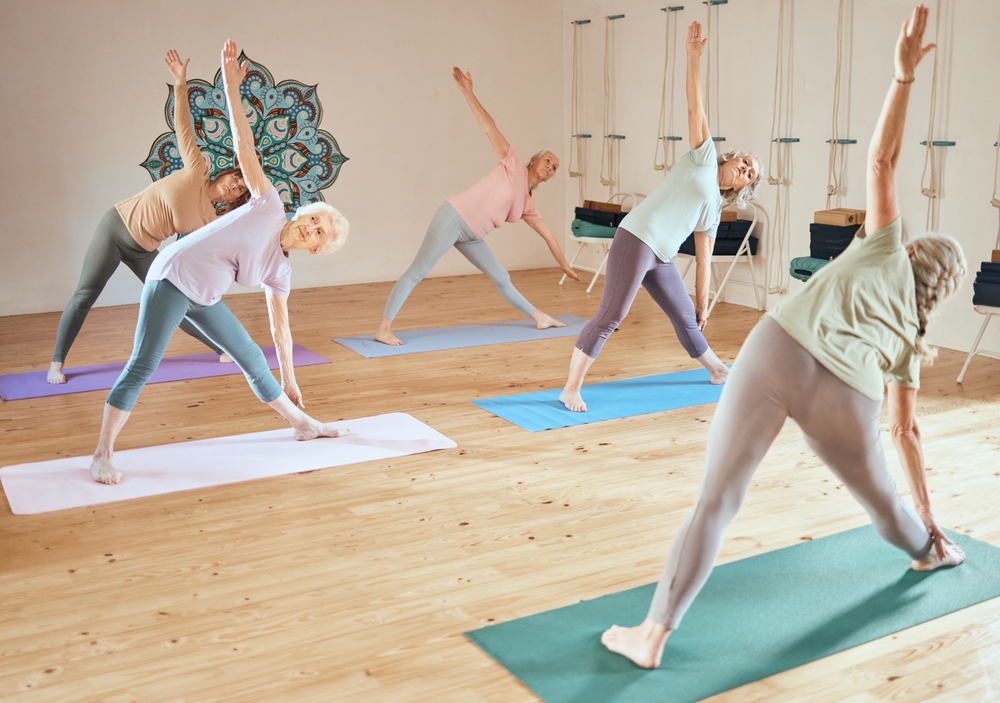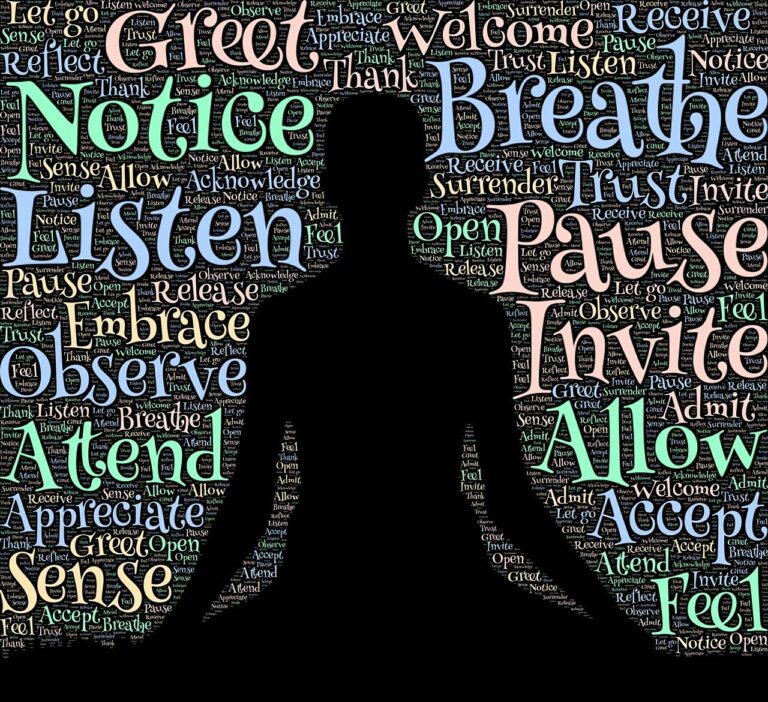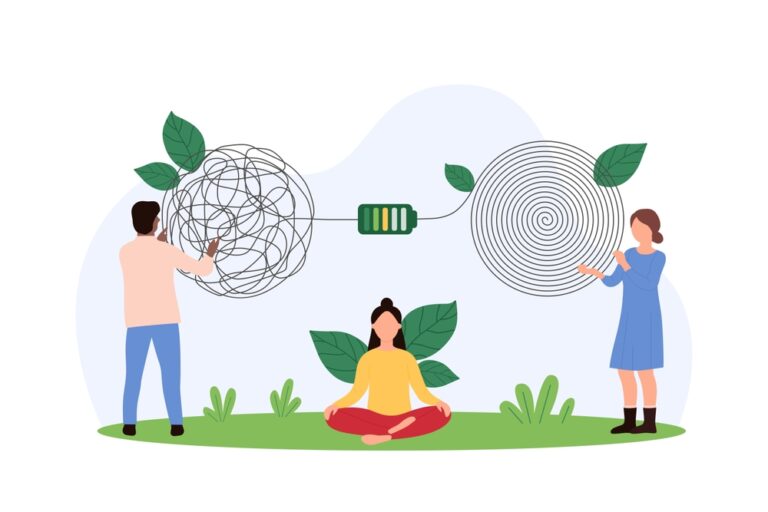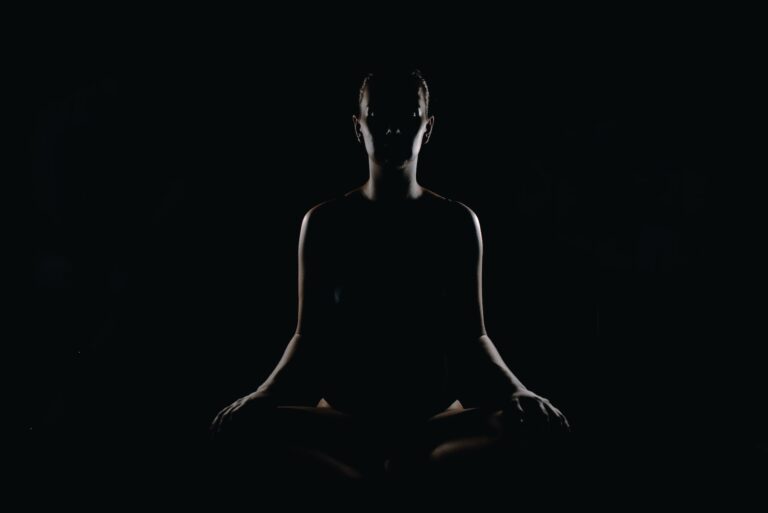How Meditation Boosts Confidence: Unlocking Your Inner Strength
How Meditation Boosts Confidence: In a fast-paced and demanding world, cultivating confidence is essential for personal and professional success. But what if I told you that the key to boosting your confidence lies within you? It’s true. Meditation, a practice that has existed for thousands of years, can be a transformative tool for unlocking your inner strength and building unshakable self-assurance.
Meditation is about quieting the mind, focusing on the present moment, and becoming more aware of our thoughts and emotions. By regularly engaging in this practice, you can gain a deeper understanding of yourself, your fears, and your limitations. As you develop the ability to observe your thoughts without judgment, you can gradually let go of self-doubt and negative beliefs, allowing your true confidence to emerge.
Research has shown that meditation can profoundly affect mental well-being, reducing anxiety and increasing self-esteem. By investing just a few minutes a day into this simple practice, you can develop a greater sense of inner calm and resilience, enabling you to navigate life’s challenges confidently and gracefully.
So, if you’re ready to unlock your inner strength and boost your confidence, why not try meditation? It might just be the game-changer you’ve been searching for.
Understanding the Power of Meditation
At its core, meditation is about finding stillness and peace within ourselves. It is a practice that allows us to observe our thoughts without judgment and cultivate a sense of presence and awareness. Through regular meditation, we can gain a deeper understanding of ourselves, our fears, and our limitations. This self-awareness is the foundation for building confidence.
Meditation provides us with a refuge from the constant noise and distractions of the outside world. It allows us to turn inward and connect with our true selves. Meditation involves focusing on a specific object, such as the breath or a mantra, and gently bringing our focus back whenever our mind wanders. This process helps us develop concentration and mental clarity, allowing us to see our thoughts and emotions more clearly.
The Connection Between Meditation and Confidence
So, how does meditation boost our confidence? The answer lies in how it transforms our relationship with our thoughts and emotions. Through meditation, we learn to observe our thoughts without becoming entangled. This helps us recognize that we are distinct from our thoughts; we are the observers of our own mental processes. This shift in perspective allows us to detach from negative self-talk and self-limiting beliefs, often the primary obstacles to confidence.
Meditation helps us develop the ability to respond to challenging situations with clarity and composure, rather than reacting impulsively. Through increased mindfulness, we gain heightened awareness of our emotions and consciously choose our responses to them, rather than being subject to their control. This newfound emotional resilience translates into greater confidence in ourselves and our ability to handle whatever comes our way.

Scientific Studies on Meditation and Confidence
The benefits of meditation on mental well-being have been widely studied in the scientific community. Numerous studies have shown that regular meditation can reduce anxiety, depression, and stress while increasing self-esteem and overall well-being.
One study published in the Journal of Health Psychology found that participants who engaged in mindfulness meditation for just eight weeks experienced a significant increase in self-esteem and a decrease in symptoms of anxiety and depression. Another study conducted by researchers at Stanford University found that mindfulness meditation can lead to a decrease in rumination, a common characteristic of low self-esteem.
These studies, along with many others, provide compelling evidence that meditation can indeed boost confidence and improve mental well-being.
How Meditation Boosts Self-Esteem
Self-esteem is closely tied to our sense of self-worth and belief in our abilities. When we have low self-esteem, we tend to doubt ourselves and our capabilities, which can hold us back from reaching our full potential. Meditation can help break this cycle of self-doubt and elevate our self-esteem.
Through meditation, we become more aware of our negative thought patterns and self-limiting beliefs. We start to see them as passing thoughts, rather than absolute truths. This awareness allows us to challenge and reframe these negative beliefs, replacing them with more positive and empowering ones.
Meditation also helps us cultivate self-compassion, which is crucial for building self-esteem. By practicing self-compassion, we learn to treat ourselves with kindness and understanding, just as we would a close friend. This self-compassion enables us to embrace our imperfections and accept ourselves unconditionally, fostering healthy self-esteem.

Strategies for Integrating Meditation into Your Everyday Schedule
If you’re new to meditation, getting started can feel overwhelming. But the truth is, that meditation doesn’t have to be complicated or time-consuming. Even just a few minutes of daily practice can yield significant benefits. Here are some techniques to help you incorporate meditation into your daily routine:
Start with short meditation sessions
Start with a brief meditation session daily, and progressively extend the duration as you grow more at ease with the practice.
Find a comfortable space
Create a quiet and comfortable space where you can meditate without distractions. This could be a corner of your home or even a peaceful spot outdoors.
Set a regular schedule
Establish a consistent meditation routine by practicing at the same time each day. This will help make meditation a habit and ensure that you prioritize it.
Experiment with different techniques
There are various meditation techniques, such as mindfulness, loving-kindness, or visualization. Experiment with various techniques to discover the one that aligns best with your preferences.
Use guided meditations
If you find it challenging to meditate alone, consider using guided meditation apps or recordings. They offer step-by-step instructions, serving as valuable tools for beginners.
Be patient and gentle with yourself
Remember that meditation is a practice, and it takes time to develop. Don’t judge yourself if your mind wanders or if you find it challenging to stay focused. Bring your attention back to your chosen object of focus and continue with your practice.
By incorporating these techniques into your daily routine, you can gradually build a consistent meditation practice to support your journey toward greater confidence.
Overcoming Self-Doubt Through Meditation
Self-doubt is a common obstacle to confidence. It is the voice in our heads that tells us we’re not good enough or that we don’t deserve success. Meditation can be a powerful tool for overcoming self-doubt and cultivating a more positive and empowering mindset.
Through meditation, we learn to observe our self-doubting thoughts without getting caught up in them. We become aware of the patterns and triggers contributing to our self-doubt, allowing us to challenge and reframe these thoughts. By recognizing that self-doubt is just a passing thought and not a reflection of our true abilities, we can gradually let go of its hold on us.
Meditation also helps us develop a sense of inner calm and stability, which can counteract the anxiety and uncertainty that often fuel self-doubt. As we cultivate a deeper connection with ourselves through meditation, we tap into our innate wisdom and strength. We realize that we can overcome challenges and achieve our goals, despite any doubts or fears that may arise.
Meditation Practices for Building Self-Confidence
While meditation, in general, can boost confidence, certain meditation practices can specifically target and enhance self-confidence. Here are a few practices that can help build self-confidence:
Loving-kindness meditation
This practice involves sending loving-kindness and compassion to ourselves and others. By cultivating feelings of love and acceptance toward ourselves, we can foster a more positive self-image and build self-confidence.
Visualization meditation
Visualization involves creating vivid mental images of ourselves achieving our goals and embodying our desired qualities. By repeatedly visualizing success and confidence, we can reprogram our subconscious mind and reinforce positive self-beliefs.
Affirmation meditation
Affirmations are positive statements that we repeat to ourselves to reinforce a desired belief or mindset. By incorporating affirmations into our meditation practice, we can gradually shift our self-talk from negative to positive, boosting our self-confidence.
Body scan meditation
Body scan meditation systematically directs our attention to different body parts, noticing any sensations or tensions. By cultivating a greater awareness of our physical sensations, we can develop a deeper connection with our bodies and build a sense of self-trust and confidence.
Remember that building self-confidence through meditation is a journey, and it requires regular practice and patience. Be consistent with your chosen meditation techniques, and trust that you will experience the transformative power of meditation in boosting your confidence over time.
Tips for Maintaining a Consistent Meditation Practice
Maintaining consistency is crucial for experiencing the advantages of meditation. Here are some tips to help you maintain a consistent meditation practice:
- Establish practical objectives: Begin with manageable goals, like engaging in five minutes of meditation daily. As you build momentum, gradually increase the duration of your practice.
- Use reminders: Set reminders on your phone or place visual cues, such as a meditation cushion or a calming image, in your meditation space to help you remember to practice.
- Make it a habit: Link your meditation practice to an existing habit, such as brushing your teeth or having tea in the morning. This association will make it easier to incorporate meditation into your daily routine.
- Find an accountability partner: Share your meditation goals with a friend or family member and check in with each other regularly. Someone holding you accountable can help you stay motivated and committed to your practice.
- Be flexible: While establishing a consistent schedule is important, it’s also essential to be flexible and adapt to changes in your routine. If you miss a meditation session, don’t beat yourself up. Resume your practice as soon as possible.
Remember that meditation is an individualized practice, and what proves effective for one person might not be suitable for another. Experiment with different strategies and techniques until you find the right routine.
Different Types of Meditation Techniques for Building Confidence
Meditation is a vast and diverse practice, with various techniques and approaches. Here are some different types of meditation techniques that can specifically help build confidence:
Mindfulness meditation
Mindfulness meditation involves bringing your attention to the present moment and observing your thoughts and emotions without judgment. By cultivating mindfulness, you can better understand your fears and limitations, ultimately leading to greater confidence.
Walking meditation
Walking meditation is a form of meditation that involves focusing on the physical sensations of walking. By bringing awareness to each step, you can develop a sense of groundedness and embodiment, boosting confidence.
Mantra meditation
Mantra meditation involves repeating a sacred word or phrase, such as “I am confident” or “I am enough.” By continuously repeating these affirmations, you can reprogram your subconscious mind and reinforce positive self-beliefs.
Body-focused meditation
Body-focused meditation involves directing your attention to different body parts and noticing any sensations or tensions. By cultivating a greater awareness of your physical presence, you can build a sense of self-confidence and trust in your body.
Gratitude meditation
Gratitude meditation involves focusing on the things you are grateful for in your life. By cultivating gratitude, you can shift your focus from what you lack to what you already have, fostering a sense of abundance and confidence.
Remember that the key to building confidence through meditation is consistency and practice. Find the techniques that resonate with you and make them a regular part of your meditation routine.
Final Thoughts: How Meditation Boosts Confidence
In a world that often pushes us to seek external validation and approval, it’s easy to forget that true confidence comes from within. Meditation offers a pathway to unlocking our inner strength and building unshakable self-assurance.
Meditation teaches us to observe our thoughts and emotions without judgment, cultivating a deeper understanding of ourselves. We develop the ability to let go of self-doubt and negative beliefs, allowing our true confidence to emerge.
So, if you’re ready to unlock your inner strength and boost your confidence, why not try meditation? Start small, be consistent, and trust in the transformative power of this ancient practice. Embrace the journey of self-discovery and watch as your inner confidence shines through, empowering you to live your life to the fullest.







